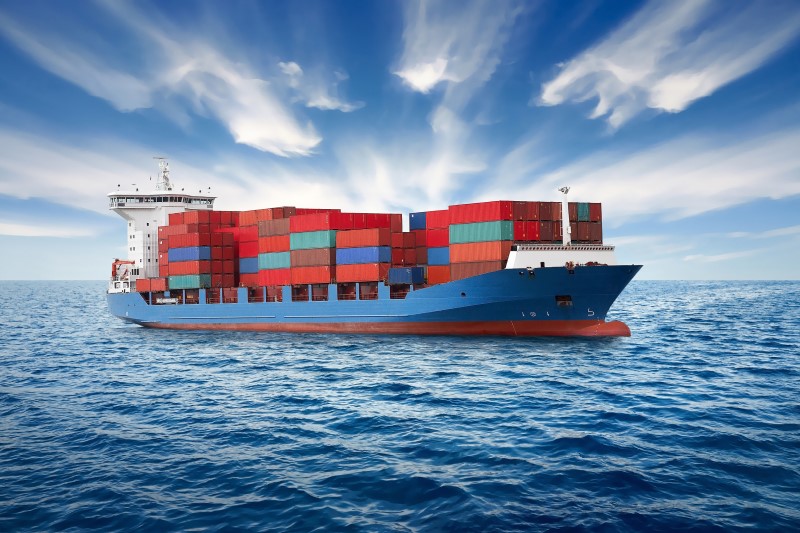Sailing the Seas of Trade: Deciphering Sea Freight Logistics
Navigating the complex world of sea freight logistics is essential for global commerce. This multifaceted system involves coordinating the movement of goods across vast oceans, encompassing shipping routes, containerization, and port operations. The process demands thorough planning to ensure efficient cargo loading, secure packaging, and adherence to international regulations.
From origin to destination, factors such as transit time, shipping costs, and cargo type play crucial roles in shaping trade dynamics. Furthermore, the emergence of digital technologies has revolutionized tracking, tracing, and communication within the maritime supply chain.
Unraveling the intricacies of sea freight logistics exposes a fascinating interplay of economics, geography, and technology that underpins the modern interconnected world of trade.
Understanding The Role Sea Freight Plays in Global Supply Chains
Sea freight stands as the foundation of global supply chains, facilitating the movement of goods on an unparalleled scale. Its significance lies in its ability to transport large volumes of cargo across continents, serving as a cost-effective mode of trade for bulk commodities and manufactured goods. Sea freight connects manufacturers, suppliers, and consumers across the world, contributing to the availability and affordability of products. The extensive network of shipping routes and ports ensures accessibility to markets far and wide.
This mode of transport, however, requires intricate arrangement. Factors such as containerization, vessel schedules, and port operations influence the efficiency of sea freight logistics. Delays, congestion, and adverse weather conditions can disrupt the flow of goods.
Despite these challenges, advancements in technology, like real-time tracking systems and predictive analytics, are enhancing visibility and predictability along the maritime supply chain. In essence, sea freight’s role in global supply chains underscores its indispensable contribution to the interconnectedness of economies and the availability of varied consumer goods.
Why is Sea Freight a Preferred Choice for Bulk and Long-Distance Cargo?
Sea freight has emerged as the preferred mode of transportation for bulk and long-distance cargo due to its inherent advantages. One of the key reasons is its capacity to handle massive volumes of goods efficiently.
Ships can accommodate a wide range of cargo types, from raw materials to finished products, making them suitable for industries like mining, agriculture, and manufacturing. The economies of scale associated with large vessels also lead to cost savings, making sea freight an economical option for transporting bulk quantities.
For long-distance shipments, sea freight offers unparalleled connectivity between distant markets. Although it might have longer transit times compared to air freight, its lower costs make it an attractive choice for non-perishable goods and those with a flexible delivery schedule. Moreover, sea freight’s lower environmental impact, compared to air transportation, aligns with growing sustainability concerns.
The global shipping network, supported by uniform containerization and advanced port facilities, ensures the smooth flow of goods across continents. As trade continues to expand, sea freight’s role as a dependable and efficient option for bulk and long-distance cargo remains unopposed.
How is EMA Shipping the Best Choice Amongst International Freight
Forwarders for Sea Freight?
EMA Shipping stands out as the premier choice among international freight forwarders for sea freight due to its exceptional service and industry expertise. With a track record of reliability and efficiency, EMA Shipping offers seamless end-to-end solutions for sea freight logistics. Their wide-ranging network of global partners and carriers ensures extensive coverage and competitive pricing.
EMA Shipping’s commitment to customer satisfaction is evident through its personalized approach. They tailor solutions to meet specific client needs, whether for bulk shipments or complex supply chains. Their advanced technological tools provide real-time tracking, minimizing uncertainties and enhancing visibility throughout the shipping process.
Beyond its operational excellence, EMA Shipping’s compliance with international regulations and commitment to sustainability further solidify its position as a top choice. Their knowledgeable team navigates complexities with ease, making sea freight transportation smooth and hassle-free. For those seeking reliability, expertise, and a customer-centric approach, EMA Shipping undoubtedly ranks as the best among international freight forwarders for sea freight.
FAQS
- What is the purpose of sea freight?
Sea freight serves to transport goods and commodities across international waters, facilitating global trade by connecting distant markets and economies.
- Which International freight forwarder company in Karachi delivers the best freight forwarding services?
EMA Shipping offers exceptional International Freight forwarding services in Karachi, boasting reliability, efficiency, and a comprehensive network for seamless cargo transportation.
Conclusion
The intricate tapestry of sea freight logistics weaves together the threads of global commerce. Through the vast oceans, bulk and long-distance cargo find their lifelines, enabling economic interdependence among nations. International freight forwarders, such as EMA Shipping, play a pivotal role in ensuring the smooth flow of goods and connecting markets across borders.
The efficiency, cost-effectiveness, and sustainability of sea freight underscore its significance in modern supply chains. As industries and economies continue to evolve, the voyage across international waters remains an essential conduit, uniting the world’s markets and fostering collaborative trade relationships.

